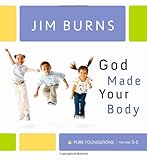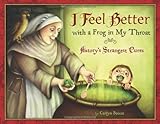Okay, if you're on the internet and in the world of books at all, you are probably well aware of yesterday's uproar over a book Amazon was selling that was basically a
how-to for pedophiles. After first responding that it was a matter of free speech, Amazon finally removed the book from their site.
We can argue until we are blue in the face (not a good color for turtles) about whether the book qualified as pornography or not, whether the rule of free speech extended to it or not, or whether censoring this book paves the way to censor anything offensive to anyone, but here's what we think in a nutshell: The whole Free Speech thing? Doesn't matter.
Now, don't get us wrong, we are not saying that free speech isn't important. What we are saying is that, in this case, it's not the issue. Amazon refusing to publish/sell something is not the same thing as a governmental entity making a law against it being published. It's entirely possible that a court could rule that Amazon, or anyone else, could legally publish this or any similar book. But, here's the thing:
Just because something is legal that doesn't make it right.
Hardly a new concept, we know, but it looks like it's something we all need to be reminded of at times. We're sure if you take a moment right now, you can think of a myriad of things that would be perfectly legal for you to do, but you don't do them. Why not? Because they are WRONG. It would be legal for one of us to, say, catch the eye of a passing child and say, "You know what? You are one ugly child." But we wouldn't do that! We recoil at the very thought! Why? Because it would be WRONG.
These days our society seems to have a hard time deeming anything 100 per cent wrong, for fear of offending someone. And yes, there are a million areas in which we are not all agreed, and probably never will be. But, pedophilia? Seriously? Do we really need to debate this?
Whether your sense of right and wrong comes from a holy book, a person, your family, an inner sense, or whatever, you have one. It is how you govern your actions, probably without thinking about it most of the time. You have a sense of right and wrong, Miss Ami has one, even we turtles have one, and, executives at Amazon, guess what? You have one, too. Use it. Don't hide behind a law or absence of one.
This rant came as we finished one of the Cybils nominees,
The Karma Club by Jessica Brody. Now, before Ms. Brody has a heart attack, let us be quick to say there is no pedophilia in this book. It is not a horrid book that should be stricken from print - in fact, it is a very cute book, which should be purchased by librarians, because teens will enjoy it.
That being said, we had some issues with it that resemble parts of the above rant. Bear with us for a moment:
Madison and her friends are a bit disappointed with karma. All three have boyfriends who have done them wrong, and nothing bad seems to be happening to them in return. They decide to give karma a little help by making sure something bad does happen. Their escapades are funny, to the point where we read some out loud to coworkers. For a while, they are enjoying the sweet taste of revenge. Then, of course, things start to fall apart - bad things start happening to THEM, as an indirect result of the things they did to their exes.
Do they learn their lesson? Sort of. Maddy realizes that the better thing to do is perform good deeds, in order to build your good karma, and make good things happen to you. The end. We suppose, if your entire belief system is built around the concept of karma, this ending will suit you just fine.
However...anybody see where we are going with this? Is the risk of bad karma the only reason we shouldn't do horrible things to other people, possibly ruining their lives? Is the hope of good karma, i.e. our own personal reward, the only reason we should perform good deeds? Let's take one example from the story (major spoiler here, so feel free to stop reading):
Seth cheated on Jade. Bad Seth. That was a rotten thing to do. So, the girls set up a fake online dating profile for Seth, saying he prefers older women. Much older. When responses start pouring in, they set up 15 'dates' with women in their 40's, of course completely unbeknownst to Seth. Strange women start showing up and embarrassing him in front of his girlfriend, his buddies, his parents and grandparents. Soon he is the laughingstock of - well, everywhere - his girlfriend dumps him, his family no longer trusts him, you get the picture.
Okay, it was funny! It was really, really funny! Until you start thinking about all the other people - his parents and grandparents, mortified in public. All those poor women. The girlfriend. Did they deserve any of that? Did Seth even deserve the ruined relationships and public humiliation? Is it really the job of a teenage girl to decide if he does? If any of those questions had been addressed by the characters, we could have gone on enjoying the book, but they never occurred to them. The only reason why any of their actions were 'wrong' was because it caused them bad karma. That's it.
How about, they were wrong because they were wrong? Because turning into a vindictive little shrew is wrong? Because taking pleasure in the pain of others is wrong? Because thinking you have enough of the answers to play God in someone else's life is wrong?
We may be coming across a bit heavy-handed on what is, really, a cute, fun book overall. Maybe it's a reaction to the Amazon fiasco, but it's also partly disappointment in seeing that cute, fun book fall apart at the end. Do buy it. Do read it. Do pass it on to your teens. But, you may want to engage those teens in a discussion when they turn it back in, and see what they thought. We give it a
4 out of 5.






















